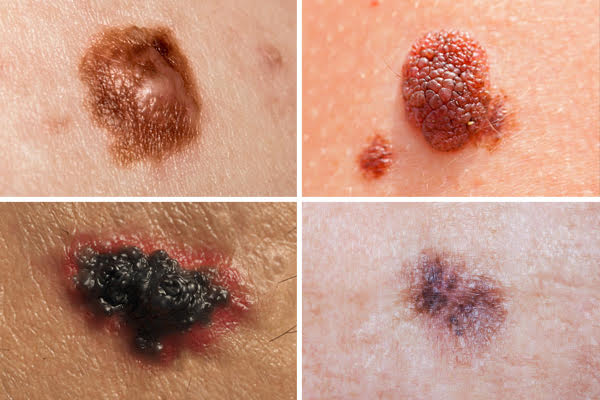End of Summer
Three Main Types of Skin Cancer



Overview
Skin cancer is the out-of-control growth of abnormal cells in the epidermis, the outermost skin layer, caused by unrepaired DNA damage that triggers mutations. These mutations lead the skin cells to multiply rapidly and form malignant tumors. The main types of skin cancer are basal cell carcinoma (BCC), squamous cell carcinoma (SCC), and melanoma. Merkel cell carcinoma (MCC) is a less common but very aggressive form that has seen increasing numbers of cases.
The two main causes of skin cancer are the sun’s harmful ultraviolet (UV) rays and the use of UV tanning machines. The good news is that if skin cancer is caught early, your dermatologist can treat it with little or no scarring and high odds of eliminating it entirely. Often, the doctor may even detect the growth at a precancerous stage, before it has become a full-blown skin cancer or penetrated below the surface of the skin
Diagnosis & Treatment
Diagnosis

Any new or unusual skin growths should be examined by a dermatologist.
Biopsies can confirm a diagnosis.
Treatment
When caught early, most skin cancers such as BCC and SCC can be removed via minimally invasive surgical excision.
If the lesion has become large, or is a more aggressive form such as melanoma, much larger areas of surrounding tissue may need to be removed. This can produce significant scarring and deformity.
Melanoma in particular can often metastasize (spread to other organs of the body), and may require even more aggressive forms of treatment such as immunotherapy, chemotherapy, and radiation therapy
Prevention
Prevention and early intervention are the most important aspect of skin cancer treatment.
- Wear UV blocking sunscreen
- Avoid extended exposure to the sun
- Examine your skin routinely
- See a dermatologist annually for a professional skin exam
So tell us YOUR story!
Ask questions!
Disclaimer: This is an informational post designed to foster discussion. It should not substitute for the advice of your doctor.
